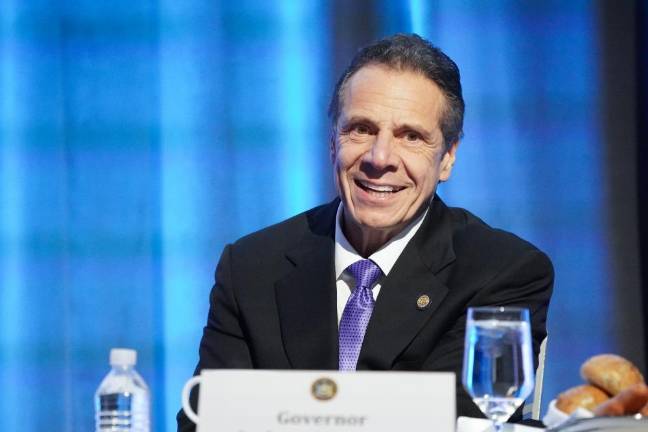Blowback to Bail Reform
Law enforcement and elected officials worry new law will mean an increase in crime as repeat offenders let go after arrests


The new year has ushered in the end of cash bail for many nonviolent defendants in New York, which advocates say will also end the practice of jailing people awaiting trial because they can’t afford to pay bail. But in the first few days of its implementation, local law enforcement officials are concerned that the new law will allow repeat offenders back out onto the streets and that arrests will no longer serve as a deterrence.
Last spring, the state legislature passed these reforms, which now limits the charges for which bail can be set. The law mandates that individuals be released on their own recognizance unless more restrictive conditions are needed to ensure they will return for their court date, and require judges to take the defendant’s ability to pay bail when applicable.
The reforms also take away a judge’s discretion to set bail on a range of misdemeanors and nonviolent felonies, which has not sat well with Republicans and moderate Democrats. Just a few days into the new rules, legislators are looking to revise the law, according the New York Post. The updated law would allow judges to consider whether a defendant poses a threat to the community when deciding whether bail is an appropriate condition of release. While in Manhattan on Monday, Gov. Andrew Cuomo admitted that the reforms may have gone too far.
"Changing the system, which we started to do ... is complicated and then has a number of ramifications," Cuomo said in a speech. "There's no doubt this is still a work in progress and there are other changes that have to be made."
The pushback on the reforms comes after a woman was released twice without bail after she allegedly slapped three Hasidic women, screaming “F-U Jews” at them. The next day, the woman, identified as Tiffany Harris, of Brooklyn, allegedly punched another woman. The alleged assaults on the Hasidic women are now being investigated as a hate crime, but, as of Monday, Harris, who is being held for a mental health evaluation, has only been charged with misdemeanors, which are not subject to monetary bail under the reforms.
Sex Offenses and Violent Felonies
In addition to misdemeanors, a number of nonviolent felonies — including stalking, assault without serious injury, burglary, a variety of drug offenses, and, in some cases, some charges of arson and robbery — are not subject to cash bail. Judges may release the defendants before trial, order supervision or, in some cases, mandate electronic monitoring to ensure they will return to court. Sex offenses, felony charges of domestic violence, criminal contempt, witness tampering and terrorism-related charges are excluded from the statute and judges may set monetary bail.
Judges are also required to consider a defendant’s ability to pay when setting bail for violent felonies. Judges must also offer bail in an unsecured or partially secured bond, where the defendant is not required to deposit any money up front or only deposit 10 percent of the bail amount in order to be released.
In 2018, according to an analysis conducted by the John Jay College of Criminal Justice, judges opted to release defendants without imposing monetary bail in 105,161 cases out of a total of 138,387 cases that continued beyond arraignment. In the 31,609 cases in which bail was set, 27,235 defendants did not post bail and were detained before their trial. If the 2020 bail reforms had been in place in 2018, 20,349 of the 31,609 cases where bail was set would have resulted in release without bail. In total, 125,510 people would have been released without bail under the reforms — meaning 90 percent of defendants would not have been jailed before their trial.
Challenges for Police
Some law enforcement officials are worries about bail reform means for their own neighborhoods.
Deputy Inspector Timothy Malin, who is the commanding officer of the 20th precinct on the Upper West Side, said the changes will present challenges for police and prosecutors.
“If you ask me if I have concerns about the potential for negative impacts on neighborhood safety? Absolutely,” said Malin. “So I think it is critical that we pay close attention to crime statistics and court data in the coming months to assess the outcomes of these changes.”
Inspector Kathleen Walsh, who commands the 19th precinct on the Upper East Side, said her biggest concern is the potential of repeat offenders being released continuously.
“To take away the judge’s discretion, I think, is ridiculous,” said Inspector Kathleen Walsh, who serves as the commanding officer of the 19th precinct on the Upper East Side. “We're not allowed to take into consideration that they've been arrested numerous times for the same crime.”
Walsh said 75 percent of the index crime in her precinct is grand larceny, and those numbers have increased over the past year.
“I get a lot of the same folks committing these crimes ... and I’m not talking about somebody who's already committed a crime once or twice,” said Walsh.
Officers in the 19th precinct arrested a man last week for robbery — it was his 131st arrest, 94 of which had all been in the 19th precinct. The man punched a store employee during the robbery, Walsh said, but the crime now isn’t subject to bail, and he’s been released and is back on the streets.
“He’s a career criminal. He doesn’t care if he gets arrested again,” said Walsh. “He loves to hit my Duane Reads, my CVS’s ... he'll take packages from the lobby of buildings. So what's to stop him from going out and doing that again?”
Under the bail reform, Walsh expects larceny and robbery crimes to continue to increase in 2020.
“To take away the judge’s discretion, I think, is ridiculous.” Inspector Kathleen Walsh, commanding officer of the 19th precinct on the UES